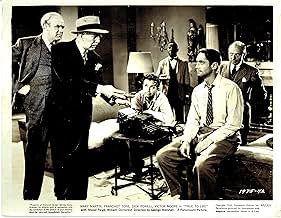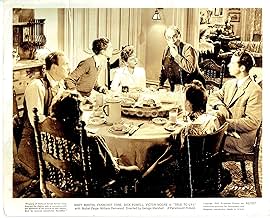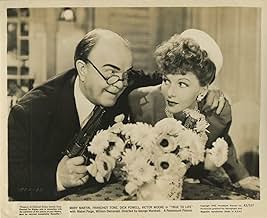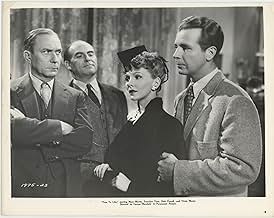Another specimen of the mass-produced corn that moviemakers churned out in the war years. Plot has Dick Powell, as a blocked radio scriptwriter, boarding with a normal-but-cute family. (Daughter Mary Martin mistakes him for a down-and-out, and he plays along so as to use their domestic chitchat for his radio characters. Of course, no one in this lovable, guileless family notices that his clothes are those of someone who earns $1,000 a week--in 1943!) Franchot Tone, in one of his many useless-playboy roles, keeps hanging around for some reason.
Instead of comedy gold, however, the dialogue is routine, and the family a bland rewrite of You Can't Take It With You, down to a dizzy father who invents nutty things, a lot of which blow up, in the basement. Father is Victor Moore, the comedian whose supposed humor relies on his being doddery and dim--the kind of person you want to kick in real life, and in this movie too. Mother is a crabby scold, and William Demarest is William Demarest. There are also two teenage children who are...teenagers. My, how comical.
There are three songs by the heavenly team of Johnny Mercer and Hoagy Carmichael, but two of these are ordinary. The exception is "The Old Music Master," the duo's jumpin'-jive reprimand to cornballs. This delightful number, with witty and offbeat lyrics, is not just the only bright spot but an unwitting self-criticism, for, ironically, it is stuck in a phony movie about American wholesomeness.
A particularly grating example of the moviemakers' determination to make the family "ordinary"--ie, uneducated: Martin says that for years she has loved the opening lines of a certain poem, and has never come across anyone who knew the rest. And what are these obscure lines? "How do I love thee? Let me count the ways" !!!!!! Okay, there was no internet in 1943, but we had librarians and teachers and dictionaries of quotations and... Poor Mary! Having to play a dope who only knows other dopes!






















